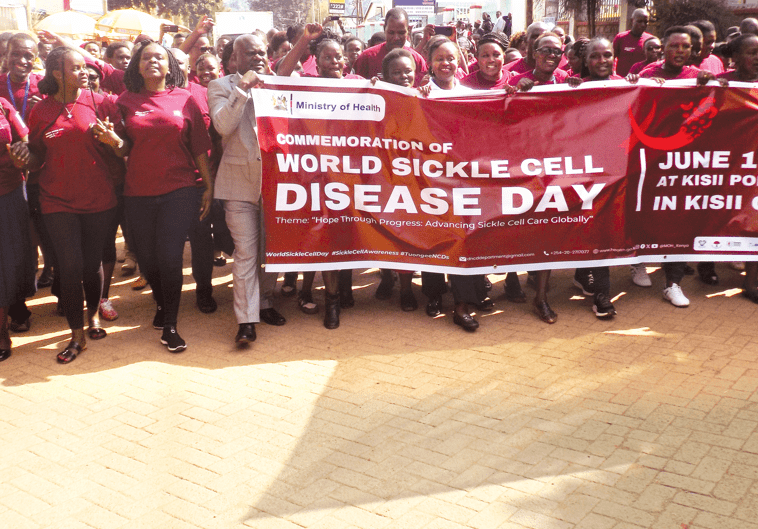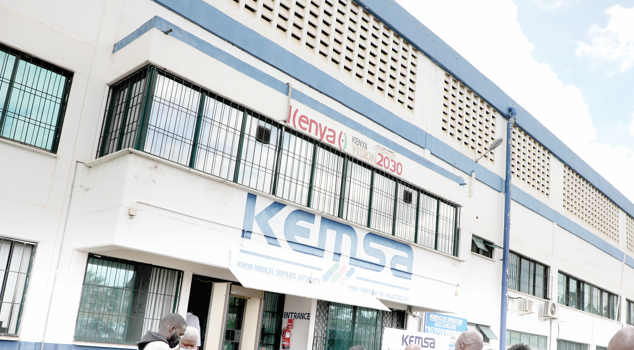Sickle cell disease: Early screening urged

The government will push for early screening for sickle cell disease and craft guidelines for diagnosis and treatment, a Health ministry official has said.
Kisii County, and the Western and Coast regions are the most affected by the disease and cases are increasing in other parts of Kenya through marriage, said Dr Elizabeth Onyango of the Division of Non-Communicable Diseases.
Children born with the condition are entitled to the highest care so that they can achieve their potential, Onyango told People Daily during an event on Wednesday to mark World Sickle Cell Day at Kisii National Polytechnic.
“We want the affected children to be able to go to school without worrying about their condition and the government is committed to having policies in place” Onyango said, adding that about 14,000 children are born with the condition annually.
The government has partnered with the Kenya Haemophilia Association, Kenya Sickle Cell Federation, the NCDs Alliance, counties and Ampath-Kenya to ensure healthcare providers are trained, educated and skilled to provide services related to the disease.
Workers, she said, will identify people and children with the disease early, put them on treatment and refer them to specialists where possible.
“We want premarital counseling to ensure couples who are carriers may make decisions on what they are getting into but the ultimate goal is to reduce the number of children who are born with sickle cell.” Onyango said.
Genetic origins
Sickle cell is a genetically inherited disease and many Kenyans were unaware of it, Catherine Karekezi, the executive director of the NCDs Alliance.
Misconceptions persist on how the disease is transmitted, she lamented, saying some people link it to witchcraft or curses and noting that families who have children with the disease are stigmatised and ostracised.
“Many children who are born with sickle cell disease do not survive to adulthood due to lack of treatment and care,” Karekezi said, adding people could live up to age 60 if the disease is diagnosed early and treated.
Some 17 counties are considered to be sickle cell-endemic.
Families affected by sickle cell disease will get the best health care from specialists, assured Kisii County Health executive Ronald Nyakweba.
He appealed to affected families to be screened and treated, adding that the county has adequate drugs and equipment to fight the disease.
“I urge residents to ensure that those with the disease are taken to hospital, diagnosed early and treated,” Nyakweba said.
Samwel Misian, Ampath advocacy relations consultant, challenged Kenyans not to discriminate against people with cell sickle disease but instead support them.












